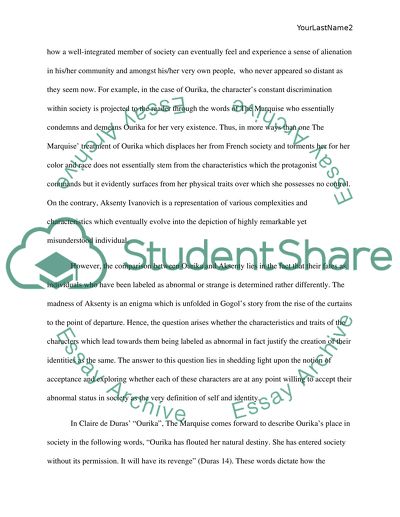Cite this document
(“Identities in Diary of a Madman by Gogol and C.de Duras Ourika Essay”, n.d.)
Identities in Diary of a Madman by Gogol and C.de Duras Ourika Essay. Retrieved from https://studentshare.org/literature/1643108-identities-in-diary-of-a-madman-by-gogol-and-duras-ourika
Identities in Diary of a Madman by Gogol and C.de Duras Ourika Essay. Retrieved from https://studentshare.org/literature/1643108-identities-in-diary-of-a-madman-by-gogol-and-duras-ourika
(Identities in Diary of a Madman by Gogol and C.De Duras Ourika Essay)
Identities in Diary of a Madman by Gogol and C.De Duras Ourika Essay. https://studentshare.org/literature/1643108-identities-in-diary-of-a-madman-by-gogol-and-duras-ourika.
Identities in Diary of a Madman by Gogol and C.De Duras Ourika Essay. https://studentshare.org/literature/1643108-identities-in-diary-of-a-madman-by-gogol-and-duras-ourika.
“Identities in Diary of a Madman by Gogol and C.De Duras Ourika Essay”, n.d. https://studentshare.org/literature/1643108-identities-in-diary-of-a-madman-by-gogol-and-duras-ourika.


